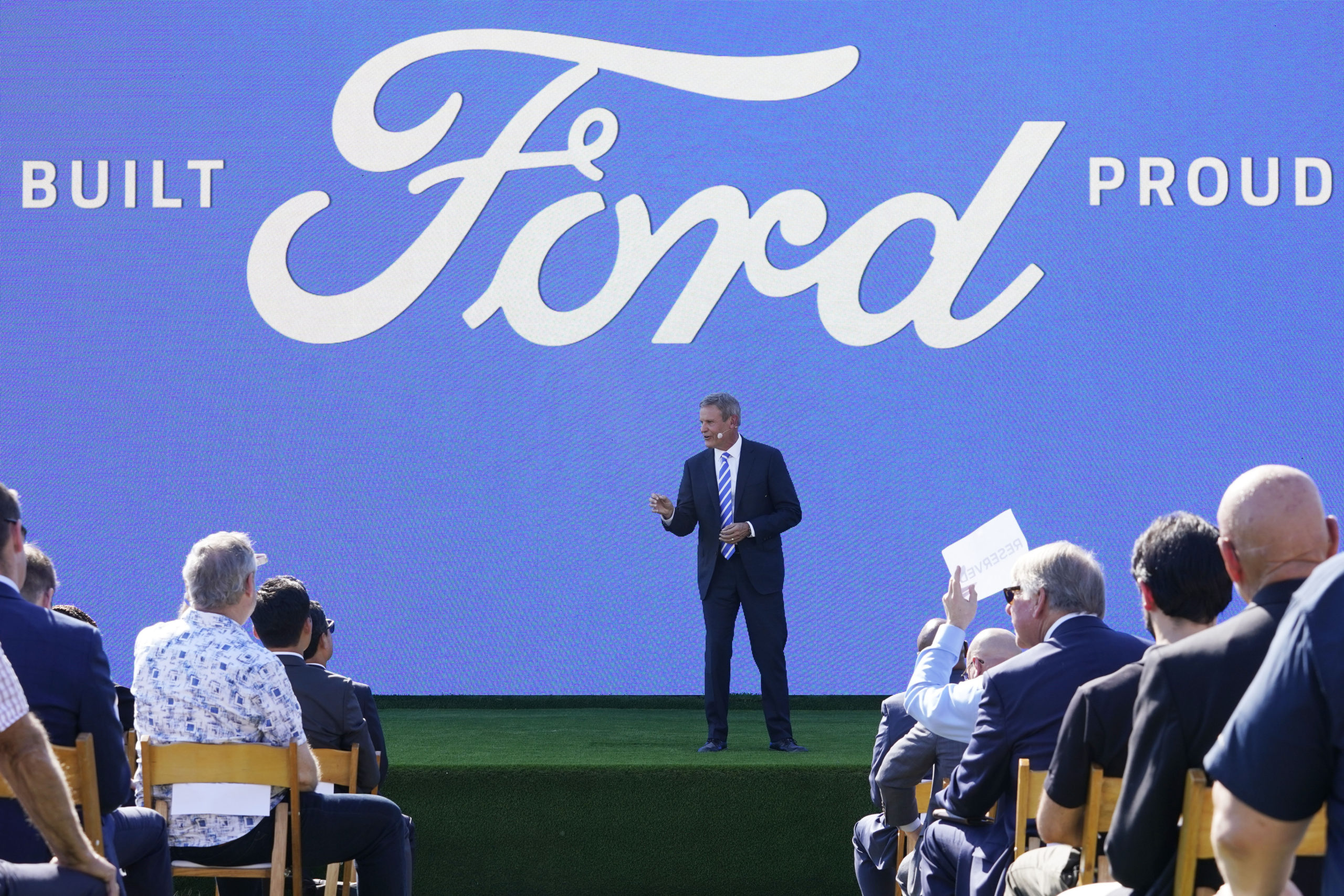 1
1 1
1
Ford will split its electric vehicle and internal combustion operations into two individual businesses to accelerate its adaptation of new technology and the Detroit automaker said Wednesday that its transformation into an EV company is accelerating.
Ford plans a major restructuring with two distinct but strategically interdependent auto businesses – Ford Blue focusing on traditional combustion engines and Ford Model e, which will develop electric vehicles.
Jim Farley, the chief executive officer of Ford Motor Co., will lead the electric division. Speaking candidly last week at an investment conference, he said that Ford did not want to completely break off its electric division, but that changes were coming.
“We are going all in, creating separate but complementary businesses that give us start-up speed and unbridled innovation in Ford Model e together with Ford Blue’s industrial know-how, volume and iconic brands like Bronco, that start-ups can only dream about,” Farley said.
The transformation of the auto industry in just the past year in pursuit of EV technology has been astonishing even to advocates who have pushed for years to put gasoline-powered cars in the rearview window. A handful of start-ups have compiled billions in capital, including heavy funding from traditional automakers.
But those upstarts have neither the funding of traditional automakers, which sell millions of cars each year, nor the ability to build at scale.
Lucid Group and Lordstown Motors, newer arrivals, released disappointing production projections this week, highlighting how difficult it is to secure materials and produce vehicles in massive numbers.
Farley said that the company recognized the need to become more nimble on the technology side with so many competitors entering the market.
“Our legacy organization has been holding us back,” Farley said. “We had to change,”
But Ford is also competing with EV heavyweight Tesla, which posted record profits last year, and another traditional automaker, General Motors, which is vowing an even faster transition to electric vehicles. GM went so far as to change its logo, with the ‘m’ in the logo underlined to look more like an electrical plug.
“Is this about winning? 100%,” Farley said. “We want to beat the old players. We want to beat the new players.”
Ford has already charged into the development of electric vehicles with the Ford GT, Mustang Mach-E SUV and F-150 Lightning pickup, and demand is high.
The company has already taken orders for 150,000 electric versions of its F-150 pickup and full production of the vehicle is expected to begin early this year. It’s building three battery plants, one that will also build electric trucks.
In January, GM said it would make the largest investment in company history in its home state of Michigan, spending nearly $7 billion to convert a factory to make electric pickup trucks and to build a new battery cell plant.
On Wednesday, Ford said that it now expects that half of its vehicles will be electric by 2030. Less than a year ago, the company announced a goal of going 40% electric by then. It also said that it will produce more than 2 million electric vehicles annually by 2026, which would represent about a third of its global fleet.
Ford Blue will provide hardware engineering and manufacturing capabilities for the entire company. Ford Model e will develop software and connected vehicle technologies and services.
Both divisions will be run out of Dearborn, Michigan, the automaker’s longtime home. Each will book its profits and losses individually.
Ford anticipates spending $5 billion on electric vehicles this year, including capital expenditures, expense and direct investments.
Farley, in addition to heading Ford Model e, will continue as CEO of Ford Motor Co. The president of Ford’s Americas & International Markets Group, Kumar Galhotra, will become president of Ford Blue. Galhotra said Ford Blue would be the economic engine that would power the electric division forward.
Shares of Ford rose more than 4% before at the opening bell.